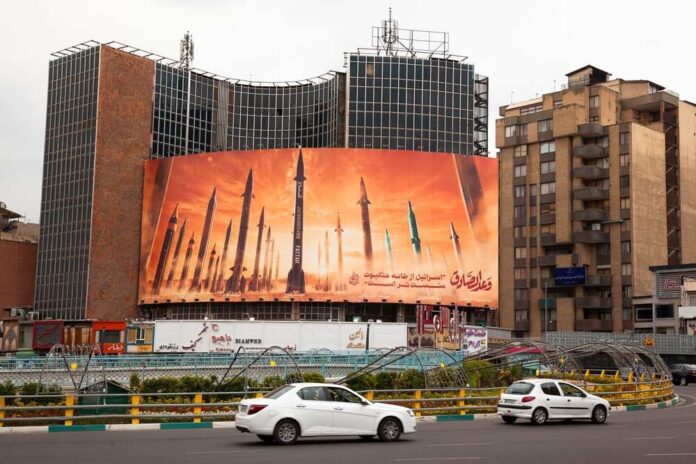
Iran claims to possess a secret weapon more powerful than nuclear bombs, threatening Israel amidst escalating tensions.
Iranian Brigadier General Ebrahim Rostami has made a startling claim that Iran possesses weapons superior to Western nuclear bombs. This revelation comes as Iran considers revising its military strategy in response to Israeli threats. Rostami argues for reevaluating Iran’s non-nuclear doctrine, citing classified elements unknown even to parliament. The general’s statements highlight Iran’s alleged strategic advantage and underscore the growing tensions between Iran and Israel, with both sides exchanging threats of escalated conflict.
Iran’s Bold Claim: Weapons Beyond Nuclear Capability
In a shocking declaration that has sent ripples through the international community, Iranian Brigadier General Ebrahim Rostami has asserted that Iran’s arsenal includes weapons surpassing the destructive power of Western nuclear bombs. This claim, if true, could dramatically alter the balance of power in the Middle East and beyond. Rostami’s statement comes at a time when Iran is actively considering a revision of its military doctrine, potentially abandoning its longstanding non-nuclear stance.
The general’s assertion is not without precedent. He points to a 2019 incident where Iran allegedly employed advanced weaponry to sabotage oil tankers in the United Arab Emirates. This operation, according to Rostami, demonstrates Iran’s capacity to wield significant military power without resorting to nuclear options. The incident serves as a stark reminder of Iran’s ability to project force in the region, even under the constraints of international sanctions and scrutiny.
Iran's secret weapon 'deadlier' than nukes.
Israel says 'response will be precise, painful.' @esha_hanspal tells you more. #IsraelIran pic.twitter.com/J1vcrS7j4m
— WION (@WIONews) October 18, 2024
Classified Capabilities and Parliamentary Ignorance
One of the most intriguing aspects of Rostami’s revelations is his claim that certain elements of Iran’s military doctrine are so highly classified that even members of parliament are unaware of them. This level of secrecy raises questions about the true extent of Iran’s military capabilities and the decision-making process behind their development and potential deployment.
“Iranian Brigadier Gen. Ebrahim Rostami has come forward to claim that Iran currently has in its arsenal weapons that are “superior” to any of the nuclear bombs currently held by Western power brokers.”
The lack of parliamentary oversight on these alleged advanced weapons systems is concerning. It suggests a potential power imbalance within Iran’s government, where military officials may have unilateral control over critical national security decisions. This situation could lead to miscalculations or unintended escalations in regional conflicts, particularly given the current tensions with Israel.
Escalating Tensions with Israel
The timing of Rostami’s claims is particularly significant given the recent spike in hostilities between Iran and Israel. Israel’s aggressive stance, including the targeted killings of key figures from Hamas, Hezbollah, and even an Iranian Revolutionary Guard Corps general, has pushed Iran to the brink of retaliation. These actions have not only heightened tensions but have also provided Iran with justification for potentially revising its military doctrine.
“When Trump wanted to reduce our oil exports, there were a number of tactical operations.”
Iran’s warnings of further retaliation if Israel continues its provocations are not idle threats. The possibility that Iran might employ these alleged advanced weapons in response to Israeli actions adds a new and dangerous dimension to the conflict. It’s a high-stakes game of chicken, with both sides seemingly willing to push the envelope of military engagement.
The Mystery of Iran’s Secret Weapon
Speculation is rife about the nature of the weapon Rostami refers to in his statements. Some experts suggest it could be the Fattah 3, a rumored fully-hypersonic weapon with electromagnetic pulse (EMP) capabilities. If such a weapon exists, it could indeed pose a threat comparable to or even surpassing that of nuclear weapons, particularly in terms of its ability to cripple electronic infrastructure.
However, the true nature of Iran’s alleged superior weapons remains shrouded in mystery. The lack of concrete evidence or independent verification of these claims leaves room for skepticism. It’s possible that Rostami’s statements are part of a broader strategy of deterrence through ambiguity, designed to keep potential adversaries guessing about Iran’s true capabilities.
Implications for Regional Stability
The implications of Iran possessing weapons more advanced than nuclear options are profound for regional stability. Such capabilities could fundamentally alter the strategic calculus of not only Israel but also other regional powers and global stakeholders. The potential for rapid escalation in any future conflict becomes significantly higher, as does the risk of miscalculation leading to devastating consequences.
As tensions continue to simmer between Iran and Israel, the international community finds itself in a precarious position. The threat of a conflict involving weapons of unprecedented power looms large, challenging existing frameworks for conflict resolution and arms control. The world watches with bated breath, hoping that cooler heads will prevail in this dangerous game of brinkmanship between two determined adversaries.














